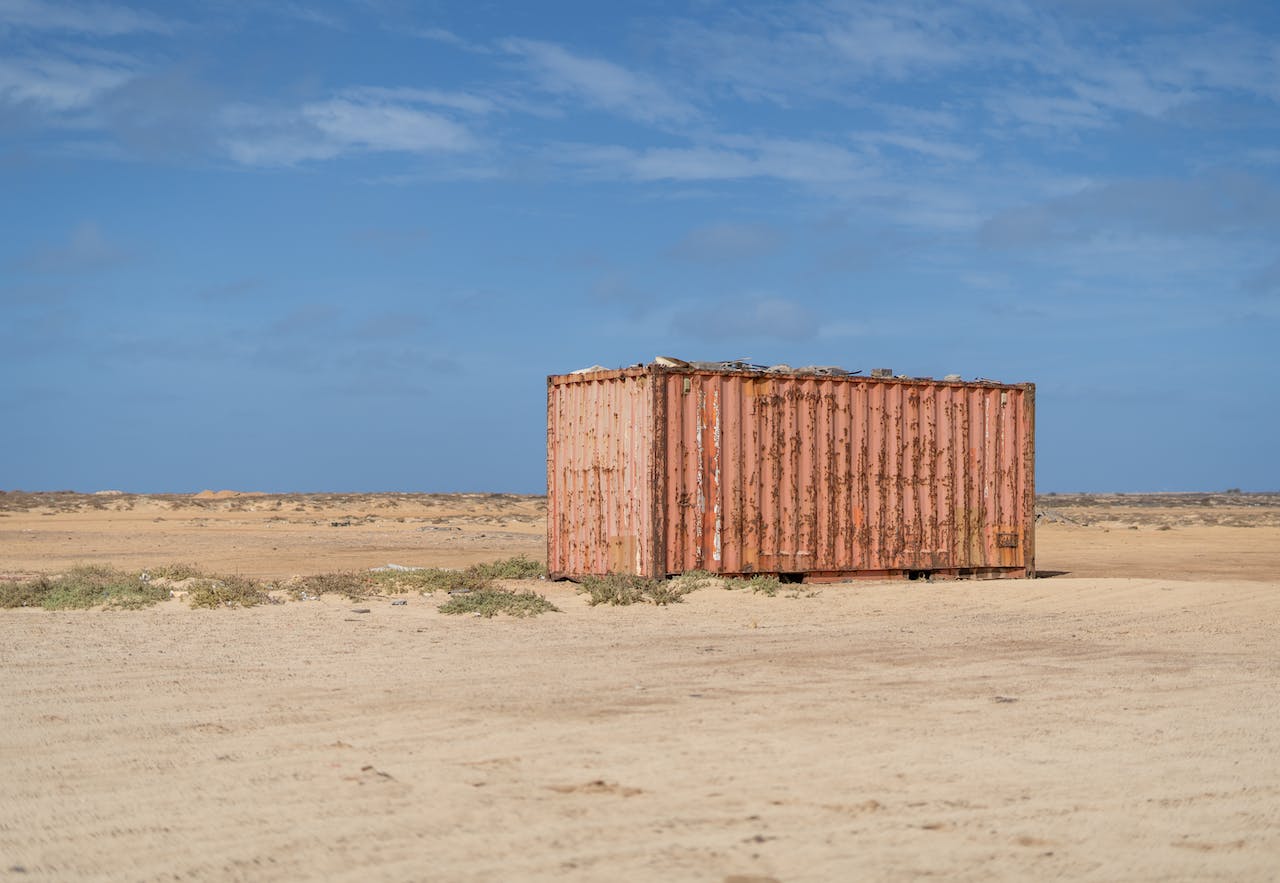La seguridad de su carga podría no ser lo primero que considere al organizar su transporte. Muchos simplemente confiamos en que llegará de A a B sin problemas.
Y en general, está bien hacer esa suposición.
Sin embargo, existen tres grandes riesgos que nosotros como transportistas debemos tener en cuenta para garantizar la seguridad de su carga.
Aquí descubrimos los tres mayores riesgos que enfrenta su carga durante su viaje.
Riesgo de piratería
Si bien la idea del capitán Jack Sparrow saqueando barcos de carga es divertida, la realidad es mucho más siniestra. La piratería puede recordarnos a los cuentos infantiles y a las películas taquilleras, pero representa un serio desafío para la industria naviera incluso hoy en día.
Si nunca ha considerado que la piratería suponga un riesgo para su carga, quizá le sorprenda saber que en 2022 se denunciaron 115 incidentes de piratería y en 2023 120. ¡Ciento veinte!
A principios de la década de 2000, nuestro sector se vio sacudido por repetidos ataques piratas en aguas cercanas a Somalia, donde pequeñas embarcaciones que albergaban grupos armados retenían a las tripulaciones de los barcos que pasaban a cambio de un rescate, exigiendo pagos por su liberación. Más recientemente, en diciembre de 2023 se produjeron ataques en el Mar Rojo, lo que nos recuerda que es necesario mantener una estricta seguridad para garantizar la protección de los envíos.
Los eventos de piratería ocurren principalmente en los siguientes puntos críticos:
- Golfo de Guinea
- Golfo de Adén
- Singapur Straight
- Fondeo del Callao
- Perú
- Brasil
La mitad de los 115 incidentes notificados en 2022 tuvieron lugar en el Sudeste Asiático.
Se deben implementar medidas de seguridad para proteger no solo la carga, sino también a los buques y sus tripulaciones de la piratería durante las travesías. El aumento de la presencia naval y la firmeza de las autoridades costeras, con una comunicación clara, han reducido el riesgo de piratería. Sin embargo, la seguridad no puede garantizarse en estas zonas, por lo que la precaución es fundamental.
Todos los ataques piratas y avistamientos sospechosos deben notificarse a las autoridades costeras pertinentes, al estado del buque y al Centro de Denuncias de Piratería de la OMI o al Centro de Denuncias de Piratería de la OMI. El Centro de Denuncias de Piratería de la OMI contribuye a la coordinación global de la defensa contra la piratería.
Riesgo de huracán
Podemos quejarnos del clima británico, pero lo peor no es nada comparado con la amenaza de un huracán real.
La temporada de huracanes describe la época del año en que se producen huracanes con mayor frecuencia en algunas zonas del mundo. Estos ocurren principalmente entre junio y noviembre. Las zonas más propensas a sufrir huracanes durante esta época del año incluyen:
- La cuenca del Atlántico, donde se producen huracanes entre junio y noviembre
- La cuenca del Pacífico Nororiental, donde se pueden esperar tormentas tanto en mayo y principios de junio como a finales de octubre y principios de noviembre.
- La cuenca del Pacífico Noroeste. Aquí se producen huracanes durante todo el año.
- La cuenca del norte de la India tiene una temporada extendida que va de abril a diciembre
- La cuenca del suroeste de la India, que se extiende desde finales de octubre hasta mayo
- La cuenca del sudeste de India y Australia, donde los huracanes tienden a ocurrir desde finales de octubre hasta mayo,
- Y la cuenca australiana/sudoeste del Pacífico. Los huracanes que se observan en esta zona ocurren desde principios de noviembre hasta mayo.
La temporada de huracanes tiene un impacto considerable en el transporte de mercancías y la logística a nivel mundial, ya que puede causar una amplia variedad de problemas. Desde daños físicos a puertos, equipos y carreteras hasta cortes de electricidad, múltiples medios de transporte se ven afectados por muchos de los mismos problemas, como inundaciones y reducción de viajes debido a los fuertes vientos.
Los camiones, en particular, deben evitar circular con vientos fuertes y lluvias intensas. Por lo tanto, los cierres de carreteras y los retrasos en los horarios de viaje seguros pueden paralizar el transporte de mercancías por carretera.
Los cortes de electricidad y las vías inundadas o dañadas pueden amenazar el transporte ferroviario, y los daños portuarios causados por un huracán ralentizarán considerablemente el transporte marítimo. Para los buques portacontenedores, la defensa contra los daños causados por huracanes es doble: la detección temprana de tormentas y el aseguramiento de las escotillas (sí, no es solo un dicho. Al asegurar las escotillas, los buques tienen más posibilidades de salir ilesos de una tormenta).

Riesgo de incendio
Su carga generalmente está sana y salva durante el transporte, pero existe un riesgo más que abordaremos en este blog.
Fuego.
Afortunadamente, los incendios son menos frecuentes, pero todavía ocurren, especialmente a bordo de los buques portacontenedores.
Las causas más comunes de incendios en buques de carga incluyen:
- Instalación eléctrica defectuosa
- sobrecalentamiento de los motores
- Iluminación
- Cigarrillos desechados
- Baterías de iones de litio almacenadas en la carga a bordo
- Contenedores demasiado llenos.
Entonces, ¿cómo se pueden prevenir los incendios de contenedores en tránsito?
Reducir los efectos devastadores de un incendio se basa en la prevención. Y por suerte para usted, hemos escrito un blog dedicado a ello. En resumen, prevenir incendios de contenedores se reduce a mitigar los riesgos de incendio. Las empresas que transportan mercancías por vía marítima pueden lograrlo etiquetando correctamente las mercancías, brindando capacitación exhaustiva al personal que las manipula y eligiendo embalajes ignífugos para sus mercancías. Haga clic aquí para leer el blog .
¿Está protegiendo su carga contra estos riesgos comunes?
Las compañías navieras con buena reputación tienen mucha experiencia en el cuidado de su carga, pero estos son riesgos muy reales para los que debe estar preparado.
¿Busca más información sobre cómo proteger su carga en tránsito? ¿Se siente confundido y abrumado al intentar encontrar la mejor manera de enviar sus mercancías? Lo tenemos cubierto. Contacte con Millennium hoy mismo para obtener asesoramiento práctico y sin compromiso, y una charla amistosa.

